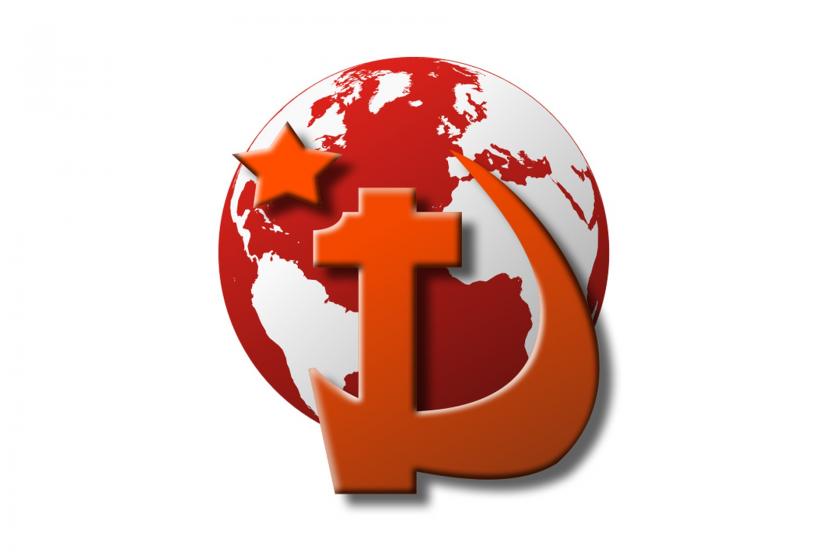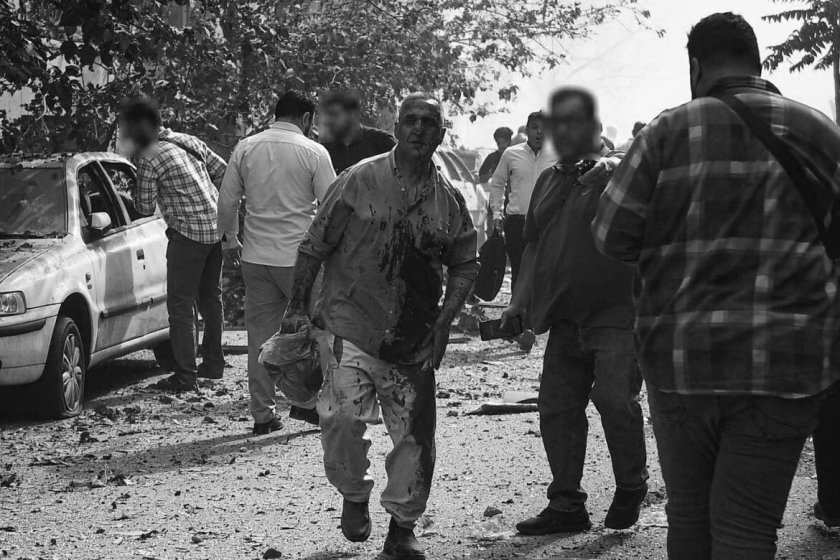Turkey elections | The truth of life defeats the state

Bülent Falakaoğlu

Fotoğraf: MA
It is not long since the general elections, which left a significant part of the electorate deeply resentful and bitter. Erdoğan seemed to be at ease at first, relying on the opposition's division and lack of morale after the May elections.
So what happened to create a big wave and deal a heavy blow to the palace regime that seemed so formidable?
***
Before answering, let's pause for a reminder.
The results of the general elections were a victory for the Cumhur alliance, although they strengthened the hand of the government, which is heading towards fascism.
Erdoğan was already aware of this on that day.
That's why he gave a speech from the balcony, which was not inclusive at all; he used a harsh tone and sent the message that his policies will continue to harden.
The 'economic' and 'political' problems had deepened... And he had to resort even more to violence and economic pressure to govern.
These facts are now out in the open.
ECONOMY HIT
In this election, 85 percent of voters said the most important problem was the economy.
The situation of pensioners took precedence over any local government project. As a result, it was said that "whoever gets the support or reaction of pensioners will win".
Moreover, the economic confidence index was falling.
The data so far shows that... If the government went into the local elections with consumer confidence below 80, it would lose.
Indeed, the index was below 80; the bells were ringing for the government!
The economy that was managed last time could not be managed this time.
EYT... Salary increases for pensioners, civil servants and public employees.
Loan packages... Money at negative interest rates...
Social benefits accelerated...
The result was one of the highest growth rates in recent years. Employment rose above the long-term trend. Unemployment fell.
When the pot was not empty, but slightly boiling, the government succeeded.
NONE OF THE MECHANISMS THAT WON THE LAST ELECTION WORKED
Let's list the points that will be analysed in detail later.
* This time the cost of living could not be controlled; the exchange rate is high, inflation is high, the purchasing power of wages is low. The working masses were hit.
* The businessmen/commercialists were happy to consume with cheap credit and increased salaries; they did not distance themselves from the government (the government's victory in Anatolia was an indication of this), now the businessmen and small industrialists were broken. Although Anatolia is still painted in the yellow of the AKP, the collapse is great.
* Employment and growth held the different segments of the capital together, the new interest rate policy broke the 'win-win' relationship for some segments of the capital.
* (Finance Minister) Şimşek's government programme led to a slowdown in industrial production and an increase in unemployment. The workers in the industrial sectors punished the government.
* Warships, planes, drones, TOG... The great development narrative was absent from this election. The poverty of the voters could not be manipulated, they could not be made to say 'I am hungry, but my country is'.
The shelf life of the "security" policy, which is clearly no longer useful locally in 2019, has expired; when the warship does not bring wealth, when the natural gas with reserves does not become cheaper...
* When the challenge to the seven world powers is replaced by cooperation with the USA and Israel... Nationalist deception, the main lever of the previous elections, has disappeared.
* In the parliamentary elections, the tactic of portraying the Kurdish vote as 'cooperation with terrorism' and whipping up nationalism also worked. This time, including the "no vote, no service" campaigns, montages, forged documents, fake posters, etc., everything backfired.
* When the challenge to the world was replaced by cooperation with the USA and Israel... Nationalist deception, the main lever of the previous elections, disappeared.
* In the parliamentary elections, the tactic of portraying the Kurdish vote as 'cooperation with terrorism' and whipping up nationalism had also worked. This time, including the "no vote, no service" campaigns, montages, forged documents, fake posters, etc., all backfired.
WHAT HAS BEEN SEEN?
1- As life in the big cities became unbearably expensive and rents unaffordable, the reaction in the metropolitan areas grew. The government is now much weaker in places that were once powerful in terms of influence and economy.
2- The decline in the government's vote in the working class cities showed the widespread anger against austerity.
3- The shift within the ruling party (from AKP to MHP) to the outer ring (YPR) and the opposition accelerated.
4- The class reaction became more visible (part of the vote shift to the YPR is due to this; masses of impoverished loyal labour voters preferred the YPR to the AKP, which was increasingly becoming an Islamist bourgeois party).
5- Even in his election rallies in other provinces, Erdoğan, who asked for votes for Ankara and Istanbul, put himself on the scales and suffered a disastrous defeat; there will be consequences.
6- The resistance of the Kurds could not be broken.
7- The IYI Party has burned itself.
8- The two parties that broke away from the AKP (DEVA and Gelecek) suffered the punishment of not being able to produce policies and not speaking out against the AKP!
Leaving a broader analysis for later, we want to emphasise that the Cumhur Alliance, which entered the elections as a "state", was defeated by the realities of life.
Forwarding to the next article...
10 seconds remaining







Follow Evrensel